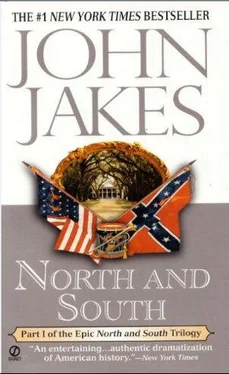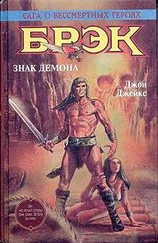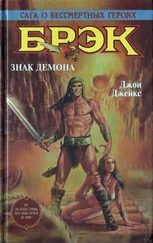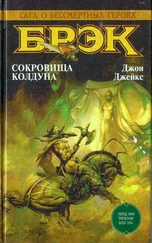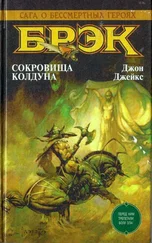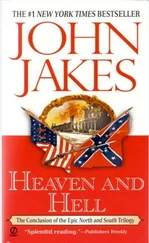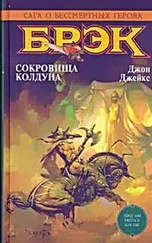Джон Джейкс - North and South
Здесь есть возможность читать онлайн «Джон Джейкс - North and South» весь текст электронной книги совершенно бесплатно (целиком полную версию без сокращений). В некоторых случаях можно слушать аудио, скачать через торрент в формате fb2 и присутствует краткое содержание. Жанр: Исторические приключения, на английском языке. Описание произведения, (предисловие) а так же отзывы посетителей доступны на портале библиотеки ЛибКат.
- Название:North and South
- Автор:
- Жанр:
- Год:неизвестен
- ISBN:нет данных
- Рейтинг книги:5 / 5. Голосов: 1
-
Избранное:Добавить в избранное
- Отзывы:
-
Ваша оценка:
- 100
- 1
- 2
- 3
- 4
- 5
North and South: краткое содержание, описание и аннотация
Предлагаем к чтению аннотацию, описание, краткое содержание или предисловие (зависит от того, что написал сам автор книги «North and South»). Если вы не нашли необходимую информацию о книге — напишите в комментариях, мы постараемся отыскать её.
North and South — читать онлайн бесплатно полную книгу (весь текст) целиком
Ниже представлен текст книги, разбитый по страницам. Система сохранения места последней прочитанной страницы, позволяет с удобством читать онлайн бесплатно книгу «North and South», без необходимости каждый раз заново искать на чём Вы остановились. Поставьте закладку, и сможете в любой момент перейти на страницу, на которой закончили чтение.
Интервал:
Закладка:
North
AND
South
John Jakes
In memory of
Jonathan Daniels
Islander, Southerner, American, Friend
Lover and friend hast thou put
far from me, and mine acquaintance
into darkness.
PSALM 88PROLOGUE: TWO FORTUNES
1686: The Charcoal Burner's Boy
"The lad should take my name," Windom said after supper. "It's long past time."
It was a sore point with him, one he usually raised when he'd been drinking. By the small fire, the boy's mother closed the Bible on her knees.
Bess Windom had been reading to herself as she did every evening. From watching her lips move, the boy could observe her slow progress. When Windom blurted his remark, Bess had been savoring her favorite verse in the fifth chapter of Matthew: "Blessed are they which are persecuted for righteousness' sake: for theirs is the kingdom of heaven."
The boy, Joseph Moffat, sat with his back against a corner of the chimney, whittling a little boat. He was twelve, with his mother's stocky build, broad shoulders, light brown hair, and eyes so pale blue they seemed colorless sometimes.
Windom gave his stepson a sullen look. A spring rain beat on the thatch roof. Beneath Windom's eyes, smudges of charcoal dust showed. Nor had he gotten the dust from under his broken nails. He was an oafish failure, forty now. When he wasn't drunk, he cut wood and smoldered it in twenty-foot-high piles for two weeks, making charcoal for the small furnaces along the river. It was dirty, degrading work; mothers in the neighborhood controlled their errant youngsters with warnings that the charcoal man would get them.
Joseph said nothing, just stared. Windom didn't miss the tap-tap of the boy's index finger on the handle of his knife. The boy had a high temper. Sometimes Windom was terrified of him. Not just now, though. Joseph's silence, a familiar form of defiance, enraged the stepfather.
Finally Joseph spoke. "I like my own name." He returned his gaze to his half-carved coracle.
"By God, you cheeky whelp," Windom cried in a raspy voice, overturning his stool as he lunged toward the youngster.
Bess jumped between them. "Let him be, Thad. No true disciple of our Savior would harm a child."
"Who wants to harm who? Look at him!" Joseph was on his feet and backed against the chimney. The boy's chest rose and fell fast. Unblinking, he held the knife at waist level, ready to slash upward.
Slowly Windom opened his fist, moved away awkwardly, and righted his stool. As always, when fear and resentment of the boy gripped him, it was Bess who suffered. Joseph resumed his seat by the fire, wondering how much longer he could let it go on.
"I'm sick of hearing about your blessed Lord," Windom told his wife. "You're always saying He's going to exalt the poor man. Your first husband was a fool to die for that kind of shit. When your dear Jesus shows up to dirty His hands helping me with the chare, then I'll believe in Him, but not before." He reached down for the green bottle of gin. Later that night, Joseph lay tense on his pallet by the wall, listening to Windom abuse his mother with words and fists behind the ragged curtain that concealed their bed, Bess sobbed for a while, and the boy dug his nails into his palms. Presently Bess made different sounds, moans and guttural exclamations. The quarrel had been patched up in typical fashion, the boy thought cynically.
He didn't blame his poor mother for wanting a little peace and security and love. She'd chosen the wrong man, that was all. Long after the hidden bed stopped squeaking, Joseph lay awake, thinking of killing the charcoal burner.
He would never take his stepfather's name. He could be a better man than Windom. His defiance was his way of expressing faith in the possibility of a better life for himself. A life more like that of Andrew Archer, the ironmaster to whom Windom had apprenticed him two years ago.
Sometimes, though, Joseph was seized by dour moods in which he saw his hopes, his faith, as so much foolish daydreaming. What was he but dirt? Dirty of body, dirty of spirit. His clothes were never free of the charcoal dust Windom brought home. And though he didn't understand the crime for which his father had suffered and died in Scotland, he knew it was real, and it tainted him.
"Blessed are they which are persecuted ..." No wonder it was her favorite verse.
Joseph's father, a long-jawed, unsmiling farmer whom he remembered only dimly, had been an unyielding Covenanter. He had bled to death after many applications of the thumbscrew and the boot, in what Bess called the killing time: the first months of the royal governorship of the Duke of York, the same man who had lately been crowned James II. The duke had sworn to root out the Presbyterians and establish episcopacy in the country long troubled by the quarrels of the deeply committed religious and political antagonists.
Friends had rushed to Robert Moffat's farm to report the owner's gory death in custody and to warn his wife to flee. This she did, with her only son, barely an hour before the arrival of the duke's men, who burned all the buildings on the property. After months of wandering, mother and son reached the hills of south Shropshire. There, as much from weariness as anything else, Bess decided to stop her running.
The wooded uplands south and west of the meandering Severn River seemed suitably rustic and safe. She rented a cottage with the last of the money she had carried out of Scotland. She took menial jobs and in a couple of years met and married Windom. She even pretended to have adopted the official faith, for although Robert Moffat had infused his wife with religious fervor, he hadn't infused her with the courage to continue to resist the authorities after his death. Her faith became one of resignation in the face of misery.
A spineless and worthless faith, the boy soon concluded. He would have none of it. The man he wanted to imitate was strong-minded Archer, who lived in a fine mansion on the hillside above the river and the furnace he owned.
Hadn't old Giles told Joseph that he had the wits and the will to achieve that kind of success? Hadn't he said it often lately?
Joseph believed Giles much of the time. He believed him until he looked at the charcoal dust under his own nails and listened to the other apprentices mocking him with cries of "Dirty Joe, black as an African."
Then he would see his dreams as pretense and laugh at his own stupidity until his pale eyes filled with shameful but unstoppable tears.
Old Giles Hazard, a bachelor, was one of the three most important men at the Archer ironworks. He was in charge of the finery, the charcoal forge in which cast-iron pigs from the furnace were re-melted to drive off an excess of carbon and other elements which made cast iron too brittle for products such as horseshoes, wheel rims, and plow points. Giles Hazard had a gruff voice and a bent for working his men and apprentices like slaves. He had lived within a ten-minute walk of the furnace all his life and had gone to work there at age nine.
He was a short, portly fellow, possessed of immense energy despite his weight. Physically, he might have been a much older version of Joseph. Perhaps that was one reason he treated the boy almost like a son.
Another reason was that Joseph learned quickly. Joseph had come to Giles's attention last summer, about the time he was beginning his second year at Archer's. Giles had been discussing the apprentices with the man in charge of the furnace. The man had bragged about how nimbly Joseph worked his way around the sand trough, where bright molten iron flowed out to many smaller, secondary troughs that resembled piglets suckling on the mother sow. The look of the main and secondary troughs had long ago led to the name "pig iron" for the finished castings.
Читать дальшеИнтервал:
Закладка:
Похожие книги на «North and South»
Представляем Вашему вниманию похожие книги на «North and South» списком для выбора. Мы отобрали схожую по названию и смыслу литературу в надежде предоставить читателям больше вариантов отыскать новые, интересные, ещё непрочитанные произведения.
Обсуждение, отзывы о книге «North and South» и просто собственные мнения читателей. Оставьте ваши комментарии, напишите, что Вы думаете о произведении, его смысле или главных героях. Укажите что конкретно понравилось, а что нет, и почему Вы так считаете.
